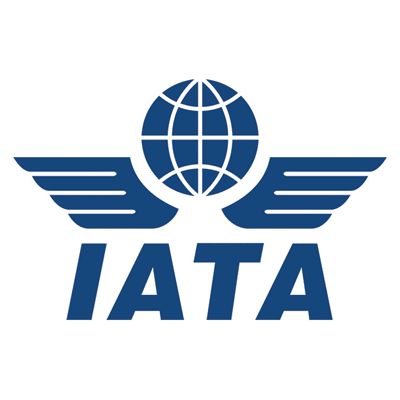Global Standards driving Middle East success
- Like
- Digg
- Del
- Tumblr
- VKontakte
- Buffer
- Love This
- Odnoklassniki
- Meneame
- Blogger
- Amazon
- Yahoo Mail
- Gmail
- AOL
- Newsvine
- HackerNews
- Evernote
- MySpace
- Mail.ru
- Viadeo
- Line
- Comments
- Yummly
- SMS
- Viber
- Telegram
- Subscribe
- Skype
- Facebook Messenger
- Kakao
- LiveJournal
- Yammer
- Edgar
- Fintel
- Mix
- Instapaper
- Copy Link
Posted: 6 November 2013 | International Air Transport Association | No comments yet
IATA called on governments to adopt and adhere to global standards that are necessary for the safe operation…


The International Air Transport Association (IATA) called on governments to adopt and adhere to global standards that are necessary for the safe, efficient and sustainable operation of the global air transport system. “Aviation has changed the world for the better. This year airlines will carry over three billion passengers and 50 million tonnes of cargo. And it is a fact that a large part of this phenomenal success story can be attributed to global standards,” said Tony Tyler, IATA Director General and CEO.
“Our success at aligning with governments and improving safety on a platform of global standards provides clear guidance on the way forward,” said Tyler. Speaking at the Annual General Meeting of the Arab Air Carriers Organization (AACO), Tyler identified commercial regulation, infrastructure capacity and environment as areas where global standards and a global approach are crucial.
Commercial Regulation
“Regulation works best when it is aligned to global standards and developed by governments working in cooperation with industry. This approach has underpinned our success in safety. But when it comes to commercial activities I have deep concerns that some governments are introducing fragmentation into our global industry. We see it in passenger rights. With the best of intentions, at least 60 governments have consumer protection legislation specific to aviation. The unintended consequences are extra costs and confusion,” said Tyler.
“The IATA Annual General Meeting in June unanimously adopted a resolution on principles on passenger rights for governments to use when regulating in this area. These principles will be taken into account by the International Civil Aviation Organization (ICAO) as it develops critically needed policy guidance in this area,” said Tyler.
Tyler also urged governments to adopt the global standards for passenger liability established in the Montreal Convention 1999. “Where there are global standards, it is important that governments use them. The Montreal Convention provides a basis for a harmonized liability regime and sets a critical part of the framework for important industry programs such as e-freight. So far, only 103 of 191 ICAO member states have ratified it. And it should be noted that even among the states which have ratified, few have actually adopted local laws to facilitate implementation. This is holding back critical efforts—including e-freight and e-Air Waybill. Global standards only deliver their maximum benefit if they are globally implemented,” said Tyler.
Infrastructure Capacity
Global standards are critical to managing scarce airport resources when demand for air travel exceeds runway capacity. “With some $40 billion being invested in airport infrastructure in the Gulf alone by far-sighted governments, it may come as a surprise that we face a capacity shortfall. But even when the new airport in Doha opens in 2014 runway capacity is not expected to meet demand during all parts of the day. The IATA Worldwide Slot Guidelines (WSG) are the industry standard used to manage capacity at 165 slot constrained airports. Efficient global connectivity is critical for all economies. The system is efficient in direct proportion to the degree of global implementation,” said Tyler.
Another area where capacity is being squeezed is airspace. “The Gulf region is a hub for global connectivity. And it offers a high level of service to global standards. But, there is a huge amount of capacity in a relatively small area. That area is further limited by military airspace. In fact only about half of the airspace across the region is open to civil aviation. Already we are seeing delays becoming commonplace,” said Tyler.
Tyler urged governments to work together with users to find solutions. “Governments across the region have recognized the importance of civil aviation in their national development plans. It now needs to manifest itself in cooperation across the Gulf to manage air traffic efficiently for everybody’s collective benefit.”
Environment
Just as global standards are crucial for the safe and efficient operation of international aviation, the industry needs a global solution to address its environmental responsibilities. “At the recent 38th ICAO Assembly, states reached an historic agreement on adoption of a market-based measure that will set the industry on the path to achieving the target of Carbon Neutral Growth from 2020 (CNG2020). This aligns with industry commitments and a call for a mandatory carbon offset scheme to be implemented from 2020. The aviation industry is fully supporting efforts to bring a detailed proposal on market-based measures to the 2016 ICAO Assembly,” said Tyler
Despite the agreement at ICAO, Europe has reintroduced its plan to include international aviation in its regional emissions trading scheme. “The European Commission has chosen basically to ignore the work at ICAO and include the portion of international flights within European airspace in its Emissions Trading Scheme from January next year. We call on them—particularly European governments—to keep the global and long-term view that underpinned the success at ICAO. The big prize is a global agreement to manage aviation’s emissions post-2020. We should not put that at risk,” said Tyler.
The Middle East
The Middle East continues to be a great success story in the aviation industry. “Talking about the need for industry-government cooperation in building effective regulatory regimes aligned to global standards may seem out-of-place in this part of the world. The Gulf success story is well-grounded in precisely that spirit of cooperation. In fact the Gulf example is a best practice success story that we are asking all governments to take note of. Even in this region it should not be taken for granted. By keeping its importance top-of-mind, I hope that it will long be a driving force of success and an example for others,” said Tyler.
This year IATA is forecasting a global industry net profit of $11.7 billion with Middle East airlines contributing $1.6 billion to that. For 2014, the outlook improves to $16.4 billion globally with airlines in the Middle East expected to generate a net profit of $2.1 billion—the highest ever for the region.

















